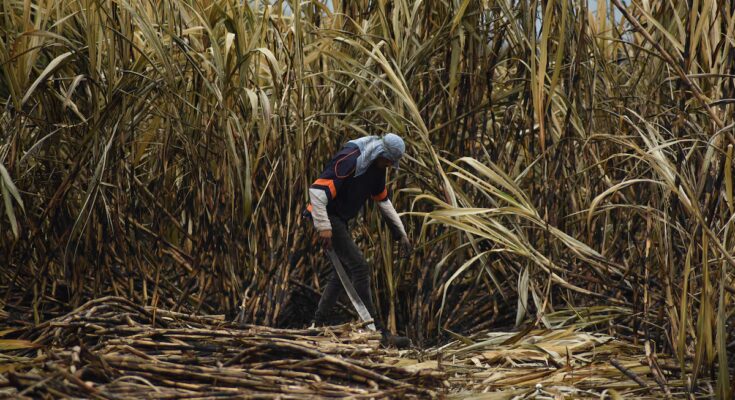Sugar producers in Mexico have left their cane fields to protest in the streets. Last Tuesday, the Sugar Union carried out numerous blockades and mobilizations in nine states of the country in the face of the domestic price crisis. Farmers are calling on Claudia Sheinbaum’s government to implement a bailout plan to address the price crisis caused by domestic oversupply, high inventories and falling prices. Sugarcane leaders from Veracruz, Morelos, San Luis Potosí and Puebla are asking the federal government for a minimum payment of 300 pesos per ton of sugarcane.
Union leaders say imports of undervalued sugar from Guatemala and Brazil, as well as imports of high-fructose corn syrup, have eroded their profits, leaving Mexican producers bankrupt. Mexican producers blocked roads, highways and entrances to the offices of the Ministry of Agriculture in Mexico City, to denounce a total abandonment by the federal authorities.
With this crisis in the background, the Executive has strengthened tariff barriers for sugar imports from countries with which Mexico has no trade agreements. This Monday the Mexican government decreed duties of 165% and 210% on sugar imports. The government acknowledges in the decree that the tariff increase is due to the fact that the sugarcane agroindustry in Mexico is facing a situation of oversupply of sugar in the national market which is putting at risk the profitability and viability of the entire production chain. Previously, imports of this food paid a tax of $0.36 per kilogram.
The document states that the measure complies with Mexico’s commitments to the World Trade Organization (WTO) and respects the limits consolidated in the multilateral lists. The tariffs, which began to apply this Tuesday, cover imports of cane sugar, refined liquid sugar, invert sugar, products with high sugar content and flavored or colored syrups.
Sugarcane producers celebrate the tariff increase, but warn that their protests continue due to the domestic disaster suffered by sugarcane farmers in the 2024-2025 harvest. Union leaders estimate the losses caused by market distortions at 15 billion pesos. “We ask the authorities for 300 pesos per ton and we will not move from there,” said Germán Corro, national president of Cañeros Produciendo por México, in an interview with local media.
Juan Carlos Anaya, director general of the Grupo Consultor de Mercados Agrícolas (GCMA), explains that the imposition of the tariff on sugar imports is a necessary defensive measure, but alone insufficient to balance the market. The agricultural market specialist warns that, in addition to imposing new taxes, the Mexican government must increase the sugar export quota to the United States, regulate the trade of high fructose corn syrup and fight smuggling and illegal sugar imports. “Mexico needs a strategy that ensures fair prices, sustainability and stability for consumers and the sugarcane sector,” he says.
In Mexico, sugar production reached 4.7 million tons, 1.4% higher than in the previous cycle, driven by improved mill efficiency. For 2025-2026 the consultancy company forecasts production of 5.1 million tonnes, favored by more stable climate conditions and the recovery of agricultural yields. About 2.5 million farmers in 15 states work in Mexico’s sugar fields.


